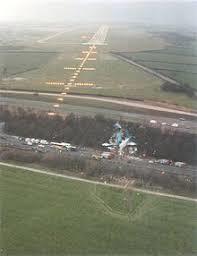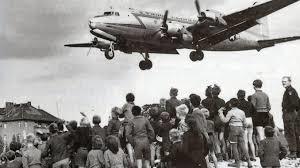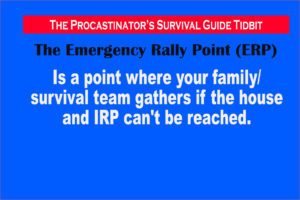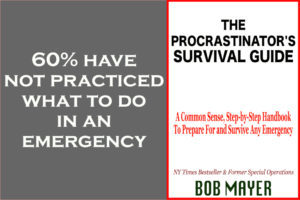Bob Mayer's Blog, page 57
July 8, 2019
What Happens When Your Pilots Shut Down Your Only Good Engine?

Got your attention?
Yes. It happened. It is one of seven disasters covered in Stuff Doesn’t Just Happen: The Gift of Failure.
That’s the plane in the image. Just short of the runway. They almost made it. And if one of the passengers had spoken up, they would have.
Passenger on British
Midland Flight 92 reflecting on hearing the pilot announce he was shutting down
the right engine: “We were thinking: ‘Why is he doing that?’ because we saw
flame coming out of the left engine. But I was only a bread man. What did I
know?”
We put our trust in experts every
day. We trust the car we drive will work. The crew of the space shuttle put its
trust in the engineers who designed it. A soldier trusts his weapon will fire. Often
we put our trust and our lives directly into the hands of experts, such as when
we board an airplane. We trust that the people who designed and built the plane
knew what they were doing and did it right. We trust that the mechanics who
worked on the plane, did so correctly. And we particularly trust that the pilot
is a professional.
We believe that the pilots know
what they are doing and are well trained. That they will react properly in
emergencies. That we shouldn’t interfere with their judgment. After all, what
do we know about flying a plane?
Every one of us has been in a
situation where we over-rode our common sense in deference to an expert. It can
be as simple as a repairman telling us something needs to be fixed, when we
really believe they aren’t going to fix the right thing. Or that the chef
undercooked our meal. But how often do we speak up?
When we put our lives in the hands of experts, and common sense says they are making the wrong decision, it’s time to speak up. Even if, as is likely, we’re wrong. Because once in a while, they’re wrong.
The Facts
On 8 January 1989, a Boeing 737-400 crashed just short of
the runway near Kegworth in the UK. 47 people were killed and 74 received serious
injuries out of a complement of 126 on board.
Shortly after taking off and
passing through 28,300 feet en route to a cruising altitude of 35,000 feet, a
blade detached from the turboprop in the left engine. It resulted in a jolt and
a bang. This was followed by a pounding noise, vibration, and smoke coming into
the cabin. Several passengers near the rear of the plane noted smoke and sparks
coming out of the left engine.
For reasons discussed below, the
pilot shut down the plane’s right engine; the wrong engine. The vibration and
smoke decreased and they descended to make an emergency landing at East Midland
Airport.
Just short of the runway, the
vibration and smoke returned as power was increased to the left engine for
landing and that engine ceased operating. The crew attempted to restart the
right engine using airflow, but because they were getting ready to land, the
plane was flying too slow and too low for this to work.
The plane crashed a quarter mile from the edge of the runway.

For an examination of the Cascade Events that went wrong leading to the crash, you’ll have to check out the book. I do give away the examination of what went wrong with the Donner Party and the St. Francis Dam failure on my nonfiction page.
By the way, the second book in this series is only .99/,99£ TODAY!
July 2, 2019
Independence Day FREE

Did you know Thomas Jefferson and John Adams died on the same day? Exactly 50 years after the signing of the Declaration of Independence on 4 July 1826.
What would have happened if there had been a Declaration of Emancipation prepared in addition to the more famous one?
What would have happened if the Union had attacked on the 4th of July, the day after Pickett’s Charge?
What would have happened if Grant’s pivotal capture of Vicksburg had turned into the Union’s greatest shame?
What if Sparta and its allies had won the Battle of Mantinea?
What if there had been two Israeli assault teams at Entebbe in 1976?
Independence Day (Time Patrol) is free today through the 4th of July in honor of the holiday.
From Philadelphia in 1776 to Gettyburg in 1863 to Monticello in 1826 to Vicksburg in 1863 to Entebbe in 1976 to the ancient battle of Mantinea in Greece in 362 BC, the Time Patrol has to keep our timeline intact.
On other fronts, the second Will Kane book is now available for pre-order: Lawyers, Guns and Money. Reviews for the first book, New York Minute have been universally positive and I am at work on the third book, Walk on the Wild Side.
I hope everyone has a safe and happy Fourth of July!
Bob
July 1, 2019
Interview in the Big Thrill
I just had an interview features in the Big Thrill, the magazine for the International Thriller Writers. Click on the image below for the complete interview. You’ll learn some interesting things about me and my writing.
New York Minute by Bob Mayer
June 29, 2019
“Worst Advice I’ve Heard from a Speaker”
This was what someone posted on a conference twitter thread
that I recently spoke at. Of course, the speaker was moi. Making friends and
sowing happiness wherever I go.
The advice was to query every agent who attended the conference
whether the attendee met the agent or not and say they had met.
Of course, the tweet didn’t include my caveat that I include at the beginning of every session where I tell people that anything I say is my opinion and feel free to ignore. My wife does that on a regular basis and she’s the smartest person I know. In fact, I’m not sure the tweeter even attended my session since no issue was raised when I said this.
Here’s my theory: the difference between being aggressive and obnoxious is whether or not someone has a good manuscript.
I’m not talking sliding manuscripts under bathroom stalls or accosting agents. I’m just talking about sending a query. But here’s something to keep in mind: those attendees PAID for those agents to attend. To get flown in, housed, and wined and dined. It’s their job. The attendees took the time and energy and finances to attend the conference. That puts them ahead of 95% of wanna-be authors out there.
You know how long someone spends on an average query? Under
a minute, if that long.
Here’s another thing: of those writers they meet that the agents actually do tell to send their material, the majority don’t. People don’t believe that, but trust me, it’s true. Writers reject themselves because they’re afraid of rejection.
I also said: if you’re not cheating you’re not trying.
Granted, that’s dangerous advice to put out. It’s like putting gasoline in the hands of pyromaniacs, but it’s also giving encouragement to the a few true writers who’ve worked hard and need a break. Because here’s a truism from my three decades making a living as a novelist: you try to get published the traditional way and then something strange and wonderful you don’t expect will happen and you seize the opportunity. Sometimes you have to make that strange and wonderful happen.
I’d rather err on the side of a hundred pyromaniacs starting
small blazes in the hopes of helping one true, hard-working writer.
I leave you with more ‘worst advice’, which I learned in Special Forces and have lived with.

The Novel Writers Toolkit and Write It Forward: From Writer to Successful Author
June 26, 2019
When Empathy Ruled: Candy Bombers

Beginning today in 1948, the Berlin Airlift is a unique moment in history. When victors went to extraordinary lengths to extend a lifeline to a conquered people who were part of a regime that had committed the greatest atrocities in modern history.
I know there were geopolitical maneuverings driving the Berlin Airlift, but it was the individuals, from the pilots to the aircrews to the maintenance people to air traffic controllers to the loaders and unloaders of the steady train of planes that kept the people of West Berlin alive from today in 1948 through September 1949.
At its height there was literally an air bridge into West Berlin with a plane landing every four minutes. Not only were they landing, they were getting unloaded and back in the air quickly. A lot of what we now have for air traffic control came out of lessons learned from the Airlift.
The initiator of the Candy Bombers is still alive, Gail Halvorsen. Perhaps we could learn a little something from why he started this, in his own words:
“I met about thirty children at the barbed wire fence that protected Tempelhof’s huge area. They were excited and told me that ‘when the weather gets so bad that you can’t land, don’t worry about us. We can get by on a little food, but if we lose our freedom, we may never get it back.'”
The Candy Bombers started with planes dropping candy with parachutes made of handkerchiefs. While the large amounts of coal and food brought in by the airlift certainly kept the people alive, the candy kept the spirits of the children alive.
We need to conjure up the spirit that ran the Airlift. It’s there inside of us.
June 24, 2019
New York Minute Publication Day and a free book

Live today on all eBook platforms, in print and audiobook, New York Minute, introducing my newest and most intriguing character, Will Kane. While it’s technically book 10 in the Green Beret series, it stands on its own as a precursor to that series and is set in 1977. Kane is a West Point grad, Special Forces veteran, now trying to make his way in the civilian. A man with deadly skills who’d prefer to leave them in his past but circumstances dictate otherwise. A slow burn book, because it’s not easy for Kane to be pushed into action, but once he is . . .
Less than 90 days from now, the second book featuring Kane, flowing out of the ending of New York Minute is Lawyers, Guns and Money. It is live for eBook pre-order. And 90 days after that will be the third Will Kane novel: Walk on the Wild Side.

In memory of the debacle at Little Big Horn 143 years ago, Stuff Doesn’t Just Happen: The Gift of Failure I is free today (6/24) and tomorrow (6/25). The story of how that terrible event unfolded is one of the seven events covered in the book, along with how Titanic’s sinking evolved, what happened to the Donner Party and four other events.
Cool Gus is still in his cone as he constantly manages to
shake it off; sometimes with Scout’s help. He’ll get healed, it just takes him
a while. Meanwhile, he’s taking a lot of naps.
Nothing but good times ahead and I hope everyone is enjoying
their summer!
Bob
June 17, 2019
Survival 5: Levels of Emergencies to Prepare for and Important Survival Definitions

DEFINITIONS
There are so many variables when we
consider the possible disasters, emergencies, accidents, etcetera that we could
face both on a day to day basis and long term. To ensure we’re on the same
page, let’s agree on some definitions.
Three
Levels of Emergencies.
I’m going to define three types of
survival situations/emergencies and will use these definitions throughout the
book. They are also the order of what is most likely to happen. Our immediate
goal is be prepared for a mild emergency. As we go through we can just focus on
mild initially, and then come back to the higher levels; when we’re done
procrastinating.
Mild: We
experience some discomfort from our normal routine for no more than 48 hours,
but it is not life threatening. Example: Our power goes off for a day or two.
Moderate: We
experience a large change from our normal routine, either natural or man-made,
which is not immediately life threatening but has the potential to become so if
not dealt with, and/or it continues. Example: Our power goes off for five days
or more. Our car slides off the road in a remote area and you are trapped
inside. A powerful hurricane is approaching. A large earthquake strikes.
Extreme: A
catastrophic natural or man-made event that immediately threatens our life and
the lives of all around us, and if it continues, will be a constant threat.
Example: A tsunami hits our coastal town. A tornado destroys our home. Nuclear,
biological and chemical accident or warfare or terrorist attack. A powerful
earthquake. The collapse of civilization. A pandemic with a high transmission
and kill rate, aka zombies. Assume the worst until the situation stabilizes.
Length
of emergency depends on how widespread it is, how severe, and how long it takes
society to recover, if at all. There are too many variables to make any definitive
parameters.
Some
extreme emergencies could be very short in duration. For example a severe car
crash. A mild emergency that continues, might have a severe, long-term effect,
such as a drought that doesn’t abate. There could be a slow economic failure
that will take years. A mild emergency for one person could be extreme for
someone else—for example a hornet sting is painful and irritating for one
person but life-threatening for someone who has an adverse reaction. That is
why the Area Study which we’ll do is so important.
As
you will see in the Area Study, I make a split and give a Mild Level of
preparation and then a Moderate/Extreme (Mod/Ex) level. Initially, focus on
being prepared for Mild. Then move to Mod/Ex in the priority determined by your
Area Study. Mod/Ex is when you are moving from common emergencies that we all
endure (such as a power outage) to something where you will probably have to
evacuate your home for an indeterminate period of time. The former will
certainly happen; the latter is one that is only a possibility we hope never
occurs to us.
AREA OF OPERATIONS refers to the area around you. This
includes your home, work, and school. It expands or contracts depending on the
circumstances.
A-TEAM
refers to the people you will be with during an emergency/disaster. For many of
us that naturally means our family. For others, it could be a group of people
we’ve coordinated with beforehand (more on that shortly). In an emergency it
could also be the people we’re trapped with. I use this term instead of
constantly referring to family/team.
IRP stands
for Immediate Rally Point. This is a point outside of your home where your
family can gather if they have to evacuate the house for some reason. The most
likely reason for this would be if there was a fire. It needs to be a place
that’s easily identifiable and not far from the house and everyone can find in
the dark.
It’s also the place where your A-Team
will rendezvous if they can’t go into the house for whatever reason, but need
to assemble from other locations, such as school and/or work.
A street intersection near the home
works well. Or a neighbor’s home.
ERP stands
for Emergency Rally Point. It is where everyone will assemble if they can’t get
to the IRP or home. This is also where your A-Team will rendezvous if they have
to evacuate the home/work/school during a moderate or extreme emergency and
have to stay for at least a day or more, with the possibility of not returning
to the home.
BOHS
stands for Bug Out Hide Site and is only for extreme emergencies where you’ve
left your home and don’t plan on coming back. It refers to being on the move
and also wherever you may stop, either temporarily or permanently, depending on
the extent of the emergency and threats.
GnG stands for Grab-n-Go bag.
The Procrastinator’s Survival Guide
Survival 5: Levels of Emergencies to Prepare and Important Survival Definitions

DEFINITIONS
There are so many variables when we
consider the possible disasters, emergencies, accidents, etcetera that we could
face both on a day to day basis and long term. To ensure we’re on the same
page, let’s agree on some definitions.
Three
Levels of Emergencies.
I’m going to define three types of
survival situations/emergencies and will use these definitions throughout the
book. They are also the order of what is most likely to happen. Our immediate
goal is be prepared for a mild emergency. As we go through we can just focus on
mild initially, and then come back to the higher levels; when we’re done
procrastinating.
Mild: We
experience some discomfort from our normal routine for no more than 48 hours,
but it is not life threatening. Example: Our power goes off for a day or two.
Moderate: We
experience a large change from our normal routine, either natural or man-made,
which is not immediately life threatening but has the potential to become so if
not dealt with, and/or it continues. Example: Our power goes off for five days
or more. Our car slides off the road in a remote area and you are trapped
inside. A powerful hurricane is approaching. A large earthquake strikes.
Extreme: A
catastrophic natural or man-made event that immediately threatens our life and
the lives of all around us, and if it continues, will be a constant threat.
Example: A tsunami hits our coastal town. A tornado destroys our home. Nuclear,
biological and chemical accident or warfare or terrorist attack. A powerful
earthquake. The collapse of civilization. A pandemic with a high transmission
and kill rate, aka zombies. Assume the worst until the situation stabilizes.
Length
of emergency depends on how widespread it is, how severe, and how long it takes
society to recover, if at all. There are too many variables to make any definitive
parameters.
Some
extreme emergencies could be very short in duration. For example a severe car
crash. A mild emergency that continues, might have a severe, long-term effect,
such as a drought that doesn’t abate. There could be a slow economic failure
that will take years. A mild emergency for one person could be extreme for
someone else—for example a hornet sting is painful and irritating for one
person but life-threatening for someone who has an adverse reaction. That is
why the Area Study which we’ll do is so important.
As
you will see in the Area Study, I make a split and give a Mild Level of
preparation and then a Moderate/Extreme (Mod/Ex) level. Initially, focus on
being prepared for Mild. Then move to Mod/Ex in the priority determined by your
Area Study. Mod/Ex is when you are moving from common emergencies that we all
endure (such as a power outage) to something where you will probably have to
evacuate your home for an indeterminate period of time. The former will
certainly happen; the latter is one that is only a possibility we hope never
occurs to us.
AREA OF OPERATIONS refers to the area around you. This
includes your home, work, and school. It expands or contracts depending on the
circumstances.
A-TEAM
refers to the people you will be with during an emergency/disaster. For many of
us that naturally means our family. For others, it could be a group of people
we’ve coordinated with beforehand (more on that shortly). In an emergency it
could also be the people we’re trapped with. I use this term instead of
constantly referring to family/team.
IRP stands
for Immediate Rally Point. This is a point outside of your home where your
family can gather if they have to evacuate the house for some reason. The most
likely reason for this would be if there was a fire. It needs to be a place
that’s easily identifiable and not far from the house and everyone can find in
the dark.
It’s also the place where your A-Team
will rendezvous if they can’t go into the house for whatever reason, but need
to assemble from other locations, such as school and/or work.
A street intersection near the home
works well. Or a neighbor’s home.
ERP stands
for Emergency Rally Point. It is where everyone will assemble if they can’t get
to the IRP or home. This is also where your A-Team will rendezvous if they have
to evacuate the home/work/school during a moderate or extreme emergency and
have to stay for at least a day or more, with the possibility of not returning
to the home.
BOHS
stands for Bug Out Hide Site and is only for extreme emergencies where you’ve
left your home and don’t plan on coming back. It refers to being on the move
and also wherever you may stop, either temporarily or permanently, depending on
the extent of the emergency and threats.
GnG stands for Grab-n-Go bag.
The Procrastinator’s Survival Guide
June 12, 2019
I Am Mother
I watched this movie last night and was impressed. The premise has been done– apocalyptic event, human embryos stores for survival, one brought to life. The first interesting line was the robot raising the child telling her the reason there is only one human is because “mothers have to learn”.
We don’t really know what happened to the outside world until near the end but it’s not that surprising, although I won’t give it away.
What was intriguing was the concept of trying to make humanity better. What would it take? We are really screwing up the world right now. Not just with climate change, which is the #1 problem, but also wealth inequality. When the bottom 50% have only 1% of the resources and we have this handful of ultra billionaires holding most of the wealth, something is seriously wrong. Something is also wrong with how much of our resources we pour into the military. We’re defending against ourselves while destroying the world. How crazy is that? This is an area I’ve veered to in the Area 51 series, especially with Redemption, Invasion and Interstellar and will continue to explore in the next book in the series.
Another interesting aspect of the movie is when the too much plastic surgery Hillary Swank shows up. The religious references are there, from her cloth crucifix to her praying to her little home and the religious icons. In essence, the movie is also saying religion is not a good thing. Has it made the world better? Like everything else the answer is simple: if a church locks its doors at night, given the number of homeless we have, then what is preached is not followed.
Whether you end up agreeing with the movie’s premise or not, it’s worth a watch. Cool Gus gives it four paws up.
June 10, 2019
Survival 4: Why You Need A Preparation & Survival Manual–What Exactly is Procrastination?

Because we know we need to do something,
but we’re not sure what, and there’s just so much other stuff to do in day-to-day
living we never get around to that something that could save our lives
and the lives of the people we love.
80% of Americans live in a county
that has been hit by a weather related disaster since 2007
60% of people have not practiced or
prepared for what to do in an emergency
55% of people think they can rely
on the “authorities” to rescue them
53% of people do not have a three
day supply of water
52% of families do not have an
emergency rally point (ERP)
48% of people have no emergency
supplies
44% of people have no first aid kit
42% of people do not know the phone
numbers of immediate family members
In the Green Berets, the most
important thing that made us elite was our planning. We not only thoroughly
planned our missions, we also prepared for all the possible things we
could imagine going wrong.
You prepare
for 3 reasons:
To avoid the emergency.
To have a plan, equipment, training
etc. in place in case the emergency strikes.
To give you peace of mind in
day-to-day living so you don’t constantly have to worry about potential
emergencies because you are prepared for them. This allows you to experience a
higher quality of life.
Procrastination comes from the Latin: pro= forward; crastinus=belonging to tomorrow. Which is a bit redundant, but you get the point. When we procrastinate we stay in a constant state of worry, knowing there’s something that needs to be done, but hasn’t been. By ticking off these tasks, your peace of mind will expand.
The Procrastinator’s Survival Guide



